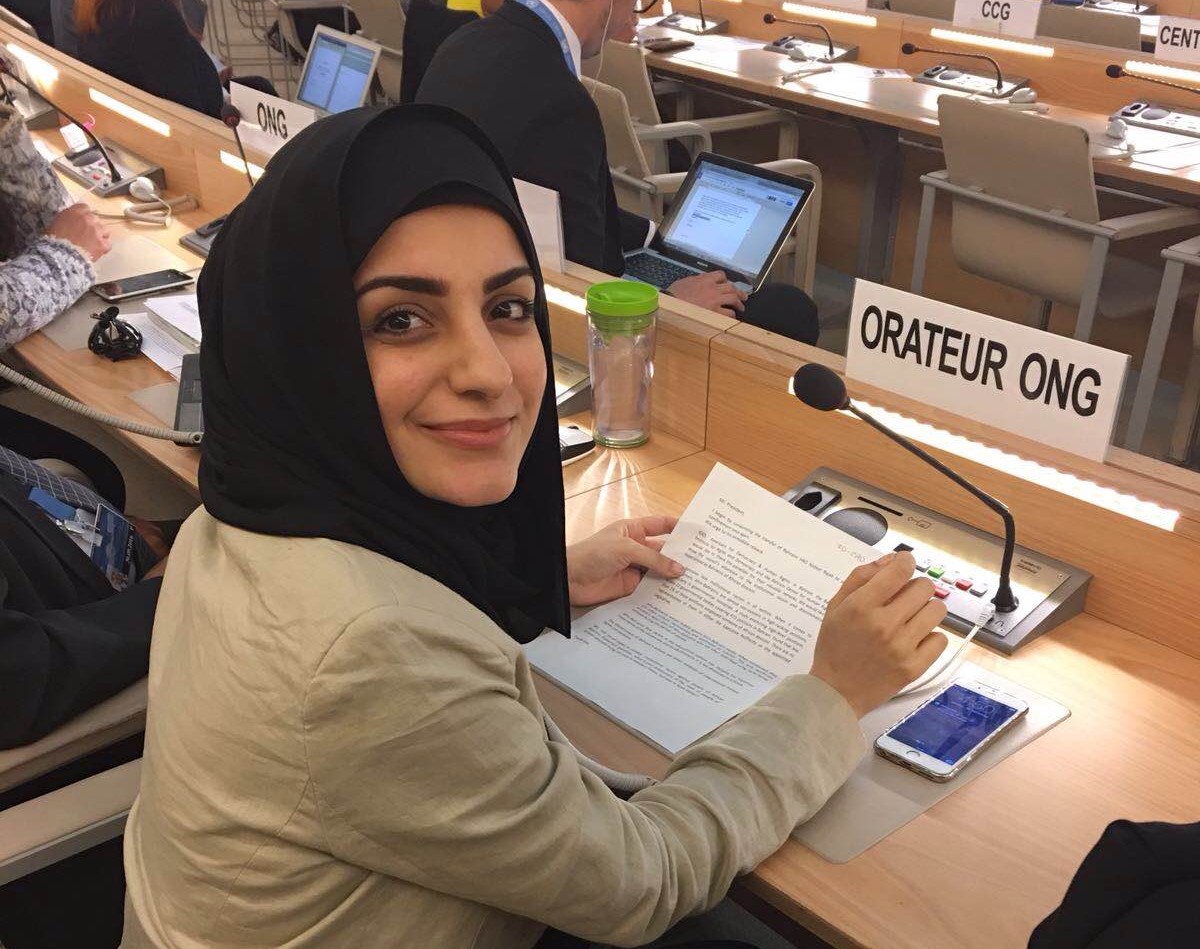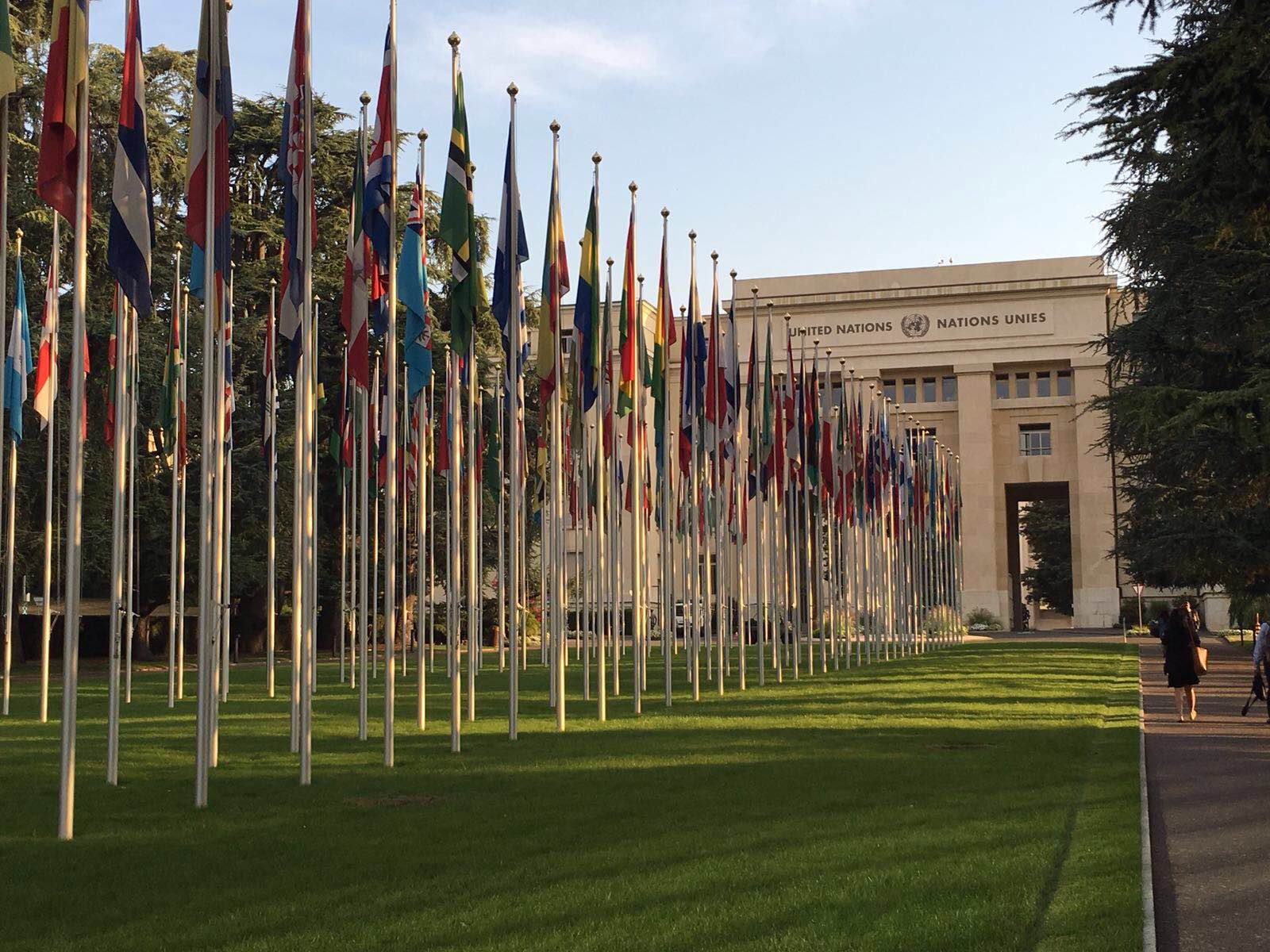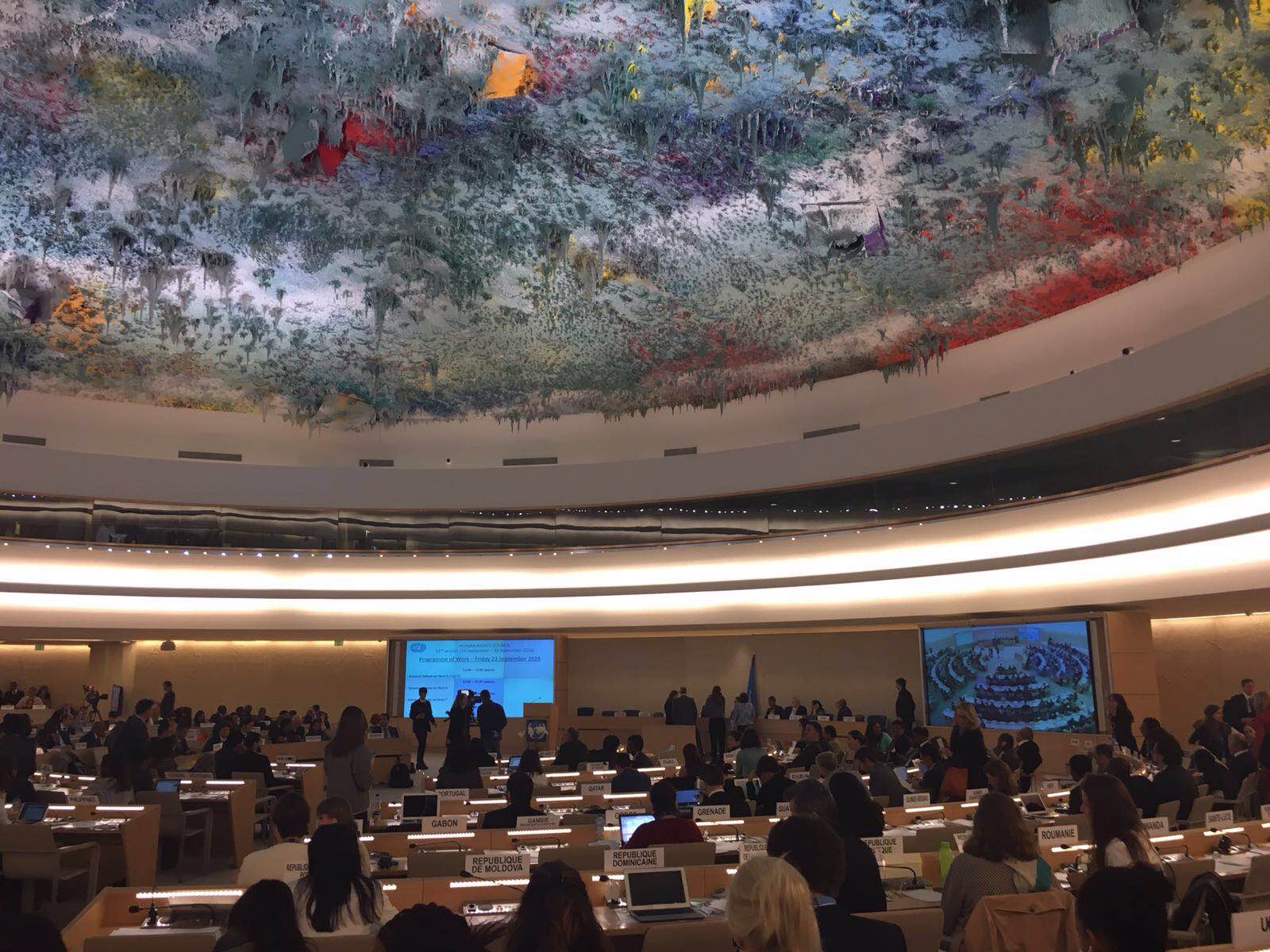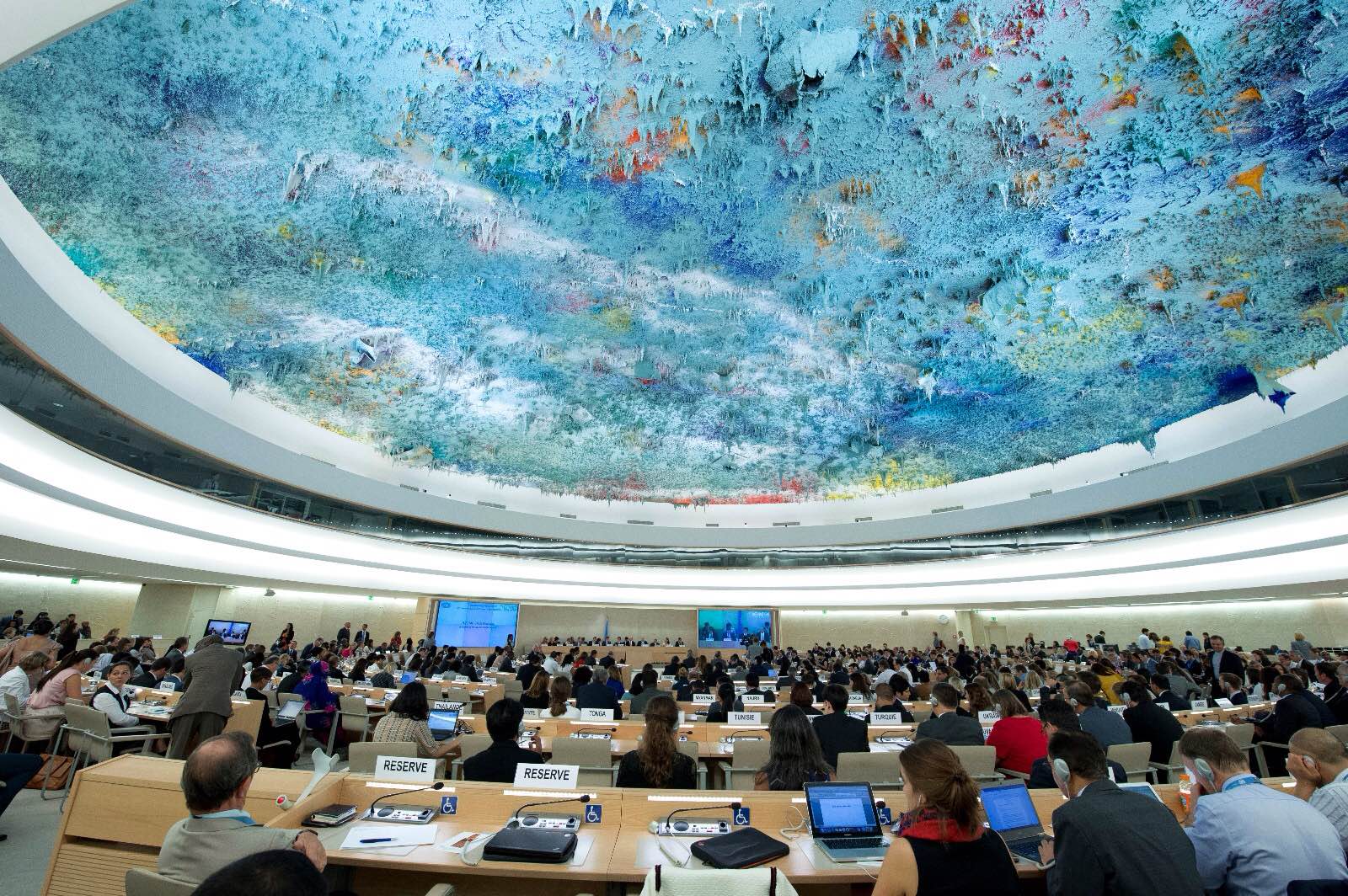On 26 September, Asma Darwish, Advocacy Officer at Bahrain Center for Human RIghts, delivered an oral intervention on behalf of ADHRB at the 33rd session of the United Nations Human Rights Council in Geneva under the Working Group on the people of African descent. Please continue reading for full remarks or click here to download a PDF. Mr. President, Americans[…]
On 23 September, Erin Sigmon, Advocacy Assistant at ADHRB, delivered an oral intervention under item 6 at the 33rd session of the United Nations Human Rights Council in Geneva. Please continue reading for full remarks or click here to download a PDF. Mr. President, Americans for Democracy & Human Rights in Bahrain, together with the Bahrain Institute for Rights[…]
On 23 September, ADHRB international advocacy officer Michael Payne delivered an oral intervention at the 33rd session of the United Nations Human Rights Council in Geneva under Item 5. Please continue reading for full remarks or click here to download a PDF. Mr. President, Americans for Democracy & Human Rights in Bahrain would like to call the[…]
On 20 September, Erin Sigmon, Advocacy Assistant at ADHRB, delivered an oral intervention under item 3 at the 33rd session of the United Nations Human Rights Council in Geneva on discrimination against the Bedoon population in Kuwait. Please continue reading for full remarks or click here to download a PDF. Before I begin my intervention, on behalf of Americans[…]
In countries with limited democratic processes, civil society organizations are essential outlets through which citizens engage with their communities, contribute their ideas on the state, and address domestic human rights issues. However, in Saudi Arabia authorities repress what little opportunity citizens have to participate in nongovernmental associations (NGOs) through an onerous and restrictive licensing policy[…]









